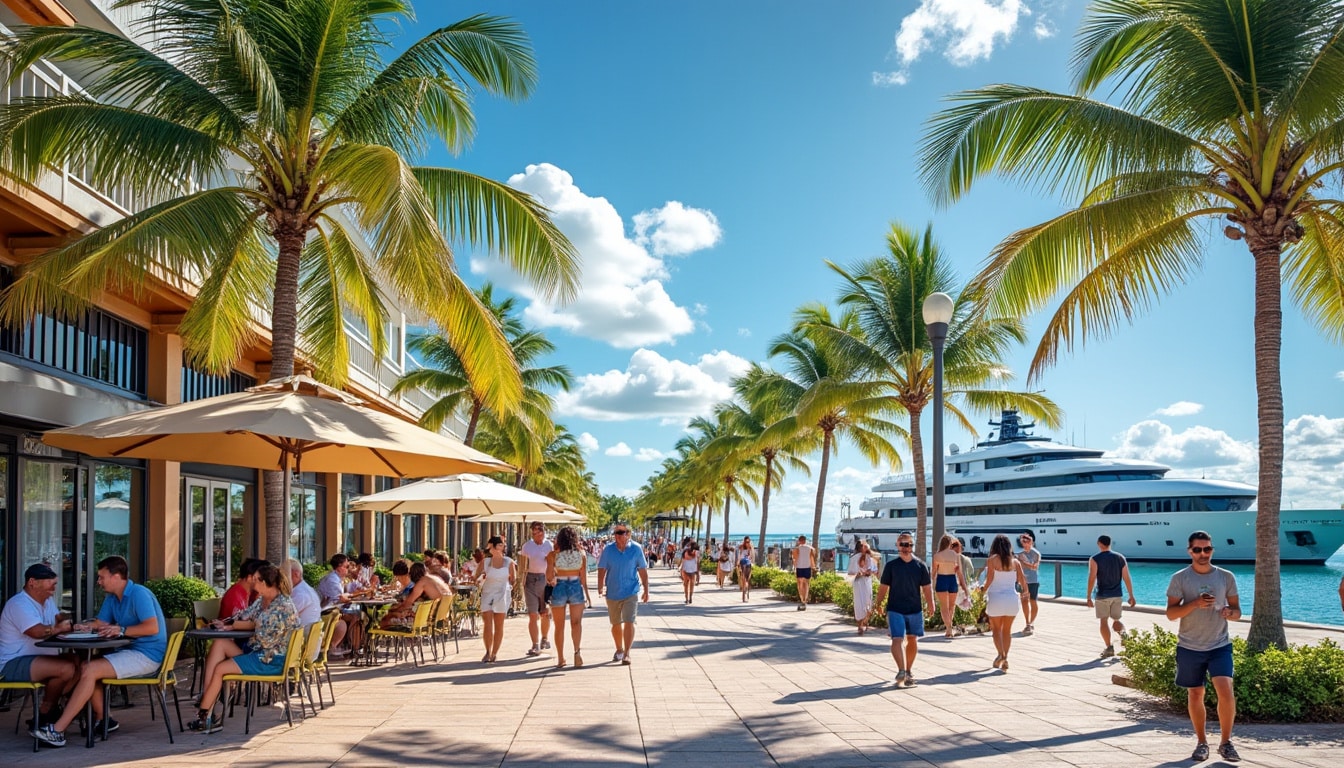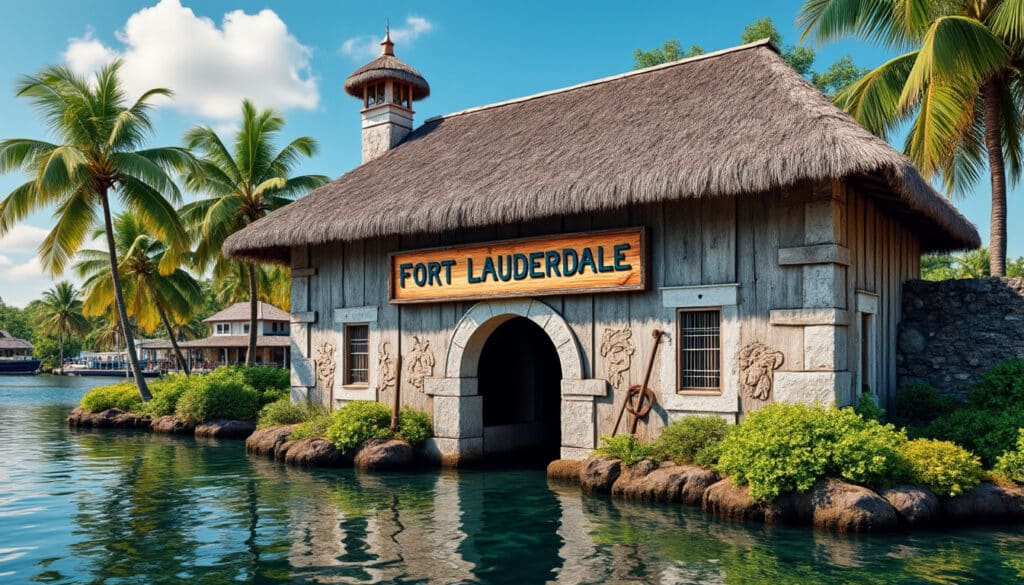Nestled along the sun-drenched shorelines of Florida, Fort Lauderdale stands as a vibrant hub of culture, tourism, and maritime allure. Renowned for its sprawling beaches and dynamic urban life, this coastal gem offers a plethora of intriguing elements to explore, from its unique pronunciation to its captivating spelling. Fort Lauderdale not only beckons beach enthusiasts and travelers alike but also serves as a linguistically fascinating case study in its own right. In this expansive exploration, we delve into the distinctive linguistic nuances that make Fort Lauderdale a topic of endless curiosity, examining everything from the phonetic intricacies of its name to the rich tapestry of words that define the city. Join us as we journey through Fort Lauderdale’s linguistic charm, unraveling the language and spelling facets that contribute to its captivating identity.
The Intricate Pronunciation of Fort Lauderdale
The question of how to pronounce Fort Lauderdale might seem straightforward at first glance, yet it unveils a complex tapestry of linguistic influences. Situated in the vibrant state of Florida, Fort Lauderdale boasts a pronunciation that subtly reflects its diverse cultural heritage. Phonetically, it aligns with the American English standard, articulated as fawrt-LAH-der-dail. This pronunciation encapsulates unique phonetic elements that are both indicative of and distinct from the typical American dialect.
The phonetic spelling reveals much about the local vernacular. The ‘fawrt’ begins with a sound akin to the ‘f’ in ‘fan’, followed by the ‘aw’ sound reminiscent of ‘law’. This juxtaposition of sounds offers insight into the regional accents prevalent in southern Florida. As for ‘LAH-der’, the ‘r’ rolls subtly, reflecting the influence of Caribbean dialects, while ‘dail’, ending with a crisp ‘d’ and ‘ai’, highlights the fluidity and richness of local speech patterns.
Such pronunciations can lead to interesting variances, even regionally, within the United States. In areas like Nanuet, NY, Fort Lauderdale is pronounced similarly, but with slight variances in intonation and emphasis. These differences serve as a testament to the linguistic diversity that pervades the American landscape, demonstrating how geographic and cultural factors can influence language.
Beyond phonetics, the pronunciation of Fort Lauderdale also has implications for social interactions and perceptions. For residents and visitors of the city, correctly pronouncing the name serves as a linguistic badge of inclusion and understanding of local culture. It provokes consideration of broader sociolinguistic issues, such as how pronunciation impacts identity and communication within a community.

An interesting exercise for language enthusiasts involves exploring the pronunciation of Fort Lauderdale in other languages, using transliteration as a tool. For instance, in Hindi, it is represented as फॉर्ट लॉडर्डेल, showcasing the universality of certain phonetic representations. Such explorations not only enhance our understanding of the city’s name but also affirm Fort Lauderdale’s status as a cosmopolitan destination where diverse cultures converge.
The Linguistic Legacy of Fort Lauderdale
Delving into the history of Fort Lauderdale reveals a linguistic legacy rich in diversity and evolution. Named after Major William Lauderdale, a participant in the Second Seminole War, the city’s name is a nod to its military origins, seamlessly blending history with contemporary life. Over time, as Fort Lauderdale transformed into a bustling urban center, its name carried this legacy forward, serving as a bridge between past and present narratives.
Understanding the etymology of Fort Lauderdale provides insights into the broader historical context of Florida itself. Originally inhabited by the Tequesta Indians, later ceded to the United States in the 19th century, the area has been a melting pot of languages and cultures throughout its development. This cultural tapestry is evident in the city’s linguistic landscape, where English coexists with Spanish, Creole, and other languages, reflecting its multifaceted community.
The influence of Spanish and Creole is particularly noticeable in areas surrounding Broward County and Las Olas Boulevard, where bilingual signage is common. These linguistic variations play a crucial role in the city’s identity, giving tourists and residents alike a taste of the cultural fusion that underpins daily life in Fort Lauderdale.
The city’s evolving demographics have also shaped its linguistic environment. As Fort Lauderdale emerged as a key hub for tourism and maritime trade, the influx of international visitors and residents expanded the linguistic repertoire. This diversity is supported by institutions such as the Greater Fort Lauderdale Convention & Visitors Bureau, which plays an active role in promoting the city’s multicultural offerings.
Incorporating other cultural and linguistic influences, this city is recognized not only as a tourist destination but also as a dynamic mosaic of languages and communication styles. From street signs to local dialects, Fort Lauderdale showcases how language plays an integral role in community building and cultural preservation.
Spelling Conventions Shaping Fort Lauderdale
Spelling conventions in Fort Lauderdale offer both challenges and curiosities, especially for international audiences navigating its unique linguistic landscape. English, the predominant language, provides a foundation for understanding, yet the spellings of local names and landmarks offer intricate nuances that invite deeper exploration.
One notable feature is the spelling of names derived from indigenous roots. Fort Lauderdale’s name itself, a combination of “fort” and “Lauderdale,” represents a strategic military vocabulary mixed with regions populated by military personnel. These nuances are significant in architectural preservation efforts within the city, as highlighted by the Fort Lauderdale Historical Society.
| Location | Common Misspellings | Correct Spelling |
|---|---|---|
| Las Olas Boulevard | Las Olas Bolevard | Las Olas Boulevard |
| Port Everglades | Port Everglades | Port Everglades |
| Fort Lauderdale Beach | Fort Lauderale Beach | Fort Lauderdale Beach |
Las Olas Boulevard is frequently misspelled as ‘Las Olas Bolevard’, reflecting the complexity of Spanish-derived names within an English-speaking context. These variations underscore the necessity of understanding the linguistic heritage implicit in Fort Lauderdale’s nomenclature.
Another crucial aspect of Fort Lauderdale’s spelling conventions is the importance placed on maintaining historical accuracy. Institutions dedicated to K-12 education, with curriculum focusing on the significance of local names, often emphasize correct spelling as a form of cultural respect and historical fidelity.
Through analyzing these spelling conventions, a more profound understanding of Fort Lauderdale’s cultural and historical fabric emerges. The spelling nuances not only serve as a reflection of the city’s diverse past but also build bridges toward cross-cultural communication and understanding for newcomers and long-time residents alike.
Lingua Franca: English’s Role in Fort Lauderdale
In Fort Lauderdale, English functions as both the lingua franca and a dynamic medium of cultural exchange. Its role extends beyond basic communication, anchoring the city’s identity in a diverse linguistic ecosystem. As a city with deep multicultural roots, Fort Lauderdale relies on English as a unifying language, facilitating connections among diverse ethnic communities.
Organizations such as the Fort Lauderdale International Boat Show and Fort Lauderdale Downtown thrive because of English’s ability to bridge cultures. During major events, signage in English is complemented by translations or adaptations for international visitors, underscoring English’s central part in welcoming tourists from around the globe.
Educational institutions, including local colleges and language schools, also play a vital role in reinforcing English’s prominence. Programs and schools that teach English as a second language are prevalent, encouraging newcomers to integrate linguistically while preserving their native tongues.
- English is used in government services 🏛️
- English is the primary language in business communications 💼
- Media and entertainment mainly in English 📺
- Public signage and instruction often primarily in English 🤝
Language diversity in Fort Lauderdale reflects its commitment to embracing multiculturalism while maintaining effective communication standards through English. This balance enables the execution of vibrant cultural exchanges and fosters an environment where various linguistic communities coexist peacefully.
Basic Facts about Fort Lauderdale
Thus, English’s pervasive presence ensures that Fort Lauderdale’s linguistic landscape is both inclusive and globally connected, setting the stage for meaningful interactions among residents, businesses, and visitors alike.
Cultural Influence on Language in Fort Lauderdale
The cultural milieu of Fort Lauderdale plays a significant role in shaping its linguistic portrait. Cultural activities and the city’s culinary scene serve as primary venues where language and culture intersect, offering residents and visitors a glimpse into the city’s multicultural heart.
Local festivities, like the Fort Lauderdale Carnival, showcase the plurality of cultures and languages coexisting in the city. During these celebrations, multilingual dialogue is a celebration, with traditional music and dance serving as universal languages that transcend verbal communication.
Similarly, Fort Lauderdale’s culinary establishments are culinary ambassadors of the city’s cultural richness. Restaurants along Las Olas Boulevard and around Port Everglades offer menus that reflect the cosmopolitan makeup of the city. Language on the menu often transcends English to integrate expressions and names from Italian, Caribbean, or Latin American cuisines.
What Do People Eat in Fort Lauderdale?
| Cuisine | Popular Dishes 🍽️ | Main Language 🗺️ |
|---|---|---|
| Italian | Pizza, Pasta | Italian & English |
| Caribbean | Jerk Chicken, Plantains | Creole & English |
| Latin American | Tacos, Empanadas | Spanish & English |
Additionally, the city’s educational events, exhibitions at the Fort Lauderdale Historical Society, and art showcases often feature multilingual content, appealing to the broad spectrum of cultural and linguistic backgrounds present in the locale.
This infusion of culture into language is part of Fort Lauderdale’s charm, making everyday life in the city a linguistic journey that captivates and educates all who partake in it.
FAQ
Here are some common questions about the language and spelling of Fort Lauderdale:
- Is the pronunciation of Fort Lauderdale easy for non-natives?
While it might seem complex initially due to its phonetic elements, with practice, the pronunciation becomes quite straightforward. - Are there official spellings for local landmarks?
Yes, local government and tourism bodies ensure official spellings of landmarks are standardized for accuracy and tourism purposes. - Is English the only language you need in Fort Lauderdale?
English is predominantly used but knowing basic Spanish can enhance experiences, especially in culturally specific areas. - Do different communities in Fort Lauderdale use different languages?
Yes, various communities within the city use languages such as Spanish, Creole, and Italian, reflecting the multicultural atmosphere. - How does language influence Fort Lauderdale’s tourism?
Language plays a crucial role in tourism, offering both inclusivity and authenticity, enriching the visitor experience through cross-cultural communication.
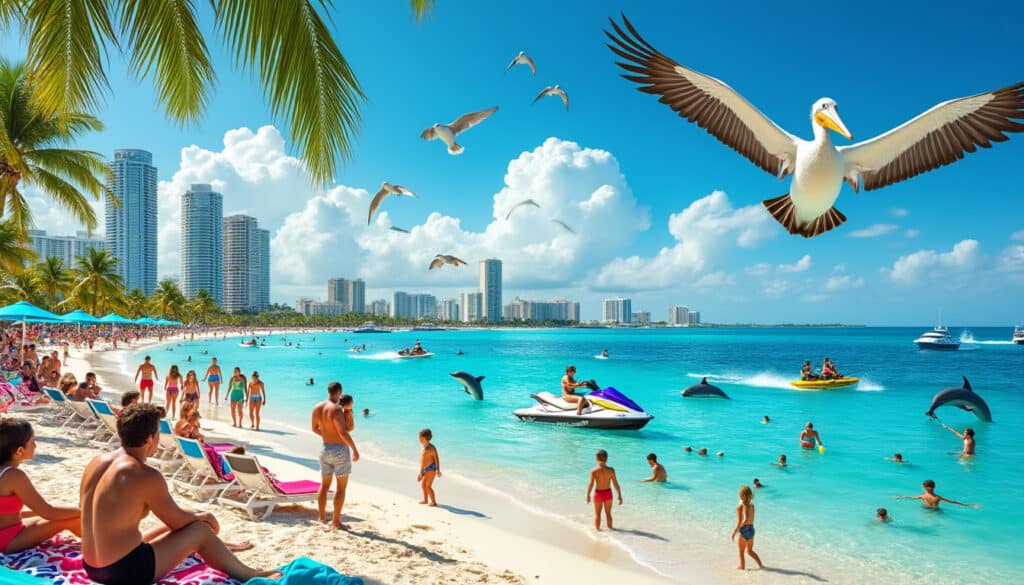
Fun Facts & Curiosities About Fort Lauderdale
Fort Lauderdale, a striking city in sunny Florida, has become a captivating destination for countless visitors worldwide. Known for its sparkling beaches, intricate canals, and vibrant culture, it offers more than just traditional tourist attractions. With fascinating history, an array…
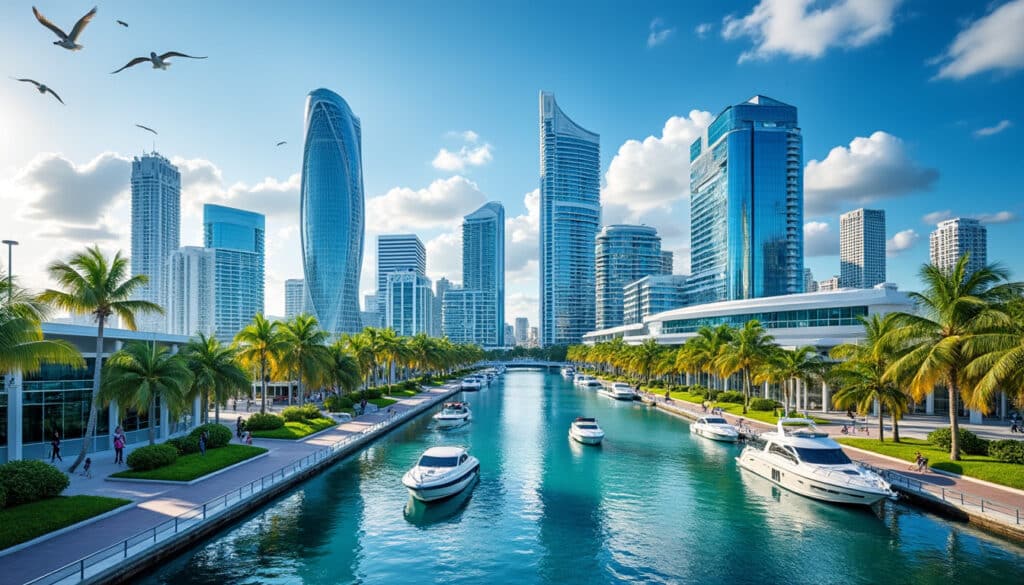
Architecture and urban features of Fort Lauderdale
Often referred to as the “Venice of America,” Fort Lauderdale, Florida is a destination that seamlessly blends history, innovation, and scenic beauty. This vibrant city is renowned for its extensive canal networks, pristine beaches, and an eclectic architectural landscape. On…
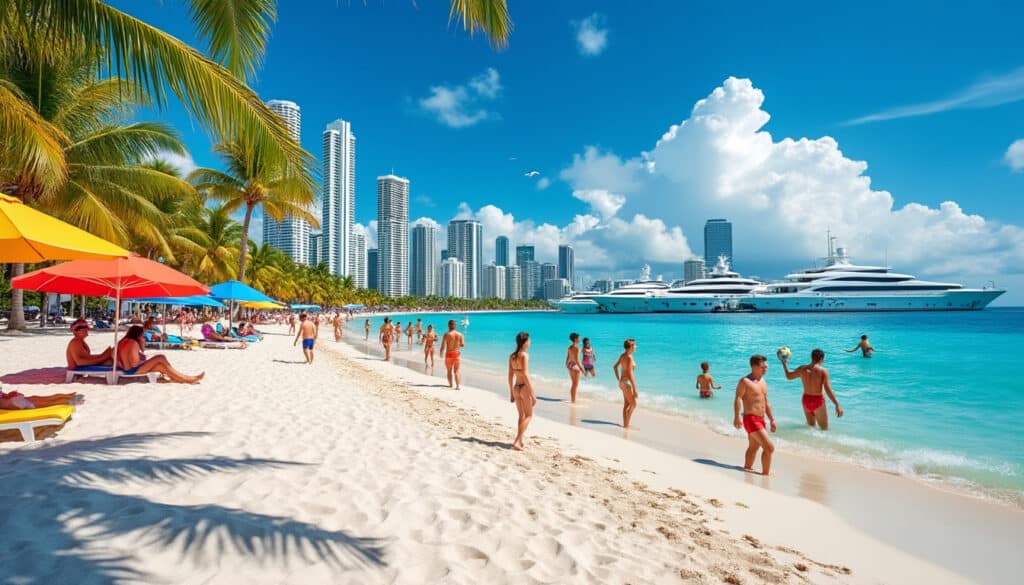
Basic facts about Fort Lauderdale
Fort Lauderdale, known as the “Venice of America,” is a vibrant city set against the picturesque backdrop of Florida’s Atlantic coastline. It is a bustling hub that features a unique blend of stunning beaches, a complex network of canals, and…

Nestled along the southeastern coast of Florida, Fort Lauderdale is a city that paints a vivid picture of sun-drenched beaches, canal-laden waters akin to Venice, and a lifestyle that intertwines with both leisure and purpose. Known for its stunning coastline,…
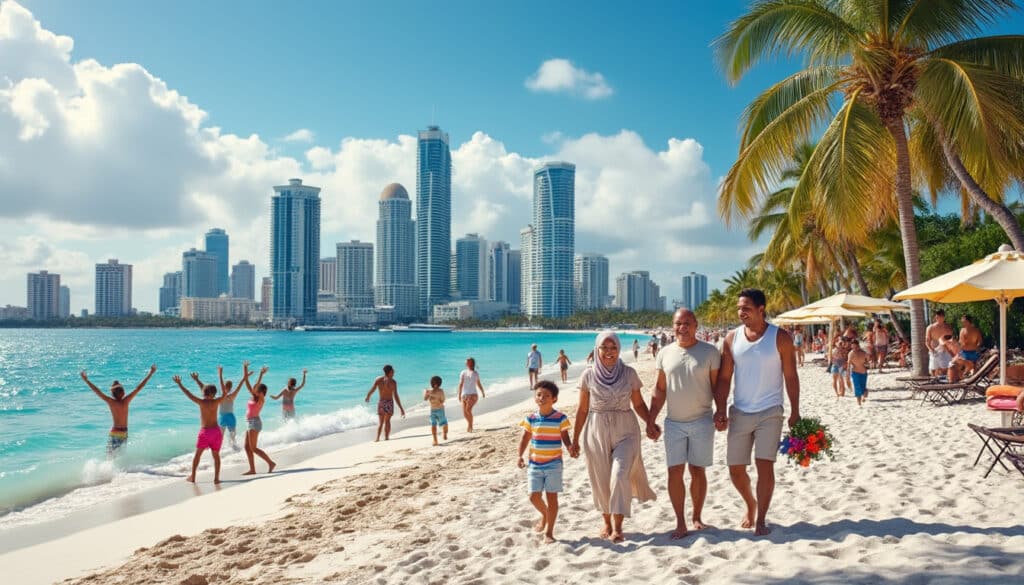
Demographics and geography of Fort Lauderdale
Fort Lauderdale, known as the “Venice of America” for its expansive and intricate canal system, offers a rich tapestry of demographics and geographical allure. This coastal gem, with its pristine beaches and vibrant cultural scene, attracts visitors and residents alike.…

Holidays and celebrations in Fort Lauderdale
In the Sunshine State, Greater Fort Lauderdale shines brilliantly during the holiday season, offering an enticing fusion of tradition, culture, and modern flair. Whether seeking holiday lights along Las Olas or enjoying beachfront festivities, this area provides a wealth of…
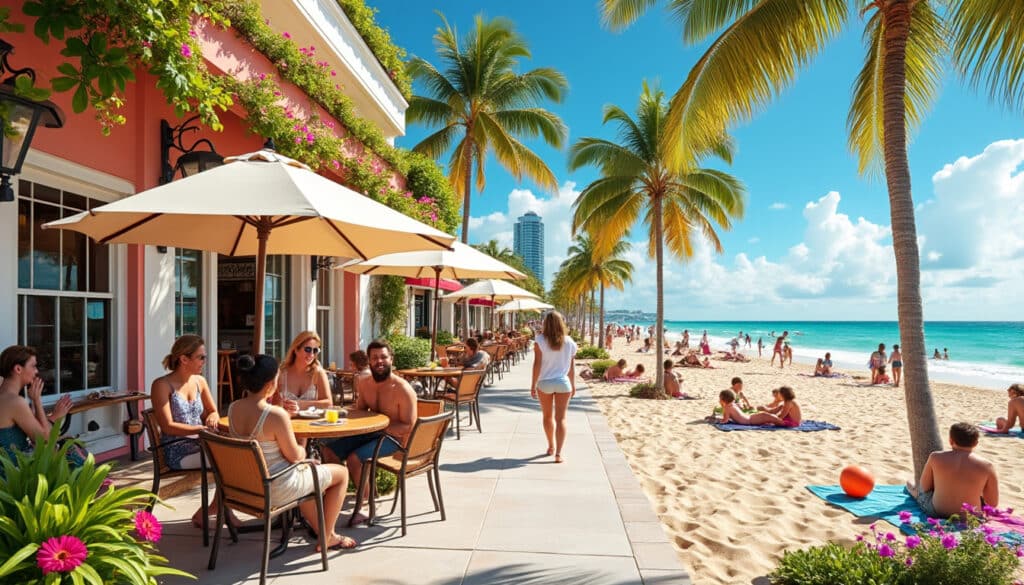
Local tips for tourists in Fort Lauderdale
Fort Lauderdale, often referred to as the “Venice of America,” is a vibrant hub for tourists seeking sun, sand, and a touch of culture. Nestled on Florida’s southeastern coast, this city offers a plethora of activities tailored for both beach…

Names, flags, and identity of Fort Lauderdale
Renowned for its beautiful coastlines and vibrant yachting scene, Fort Lauderdale’s name is steeped in a rich history that combines military feats, cultural evolution, and natural beauty. Nestled in sunny Florida, this city has grown from a strategic military fort…
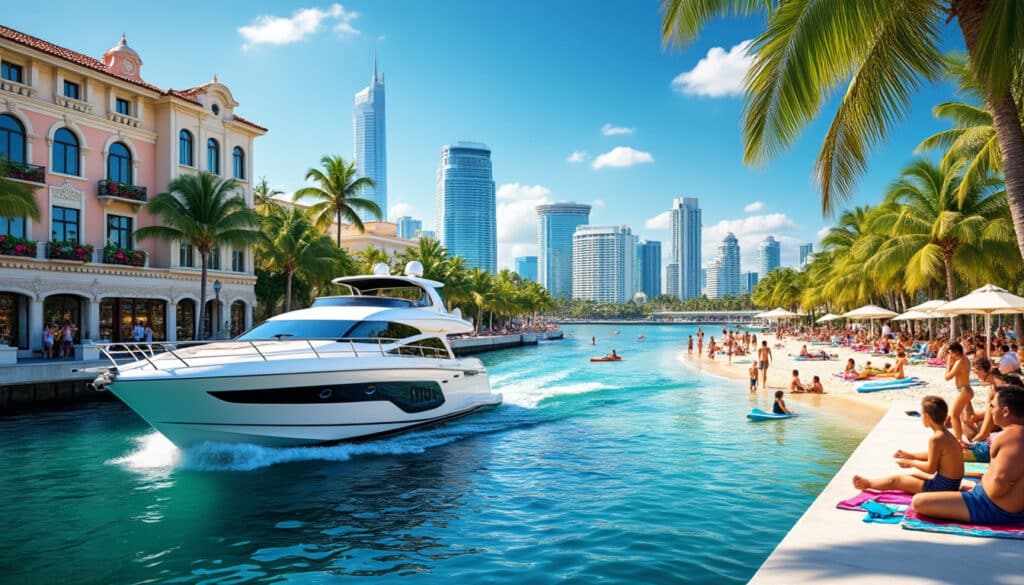
Reputation and identity of Fort Lauderdale
Fort Lauderdale, often overshadowed by its flashy neighbor Miami, possesses its own unique blend of characteristics that contribute to its reputation and identity. Known as the “Venice of America,” this enchanting city is home to an extensive network of canals,…
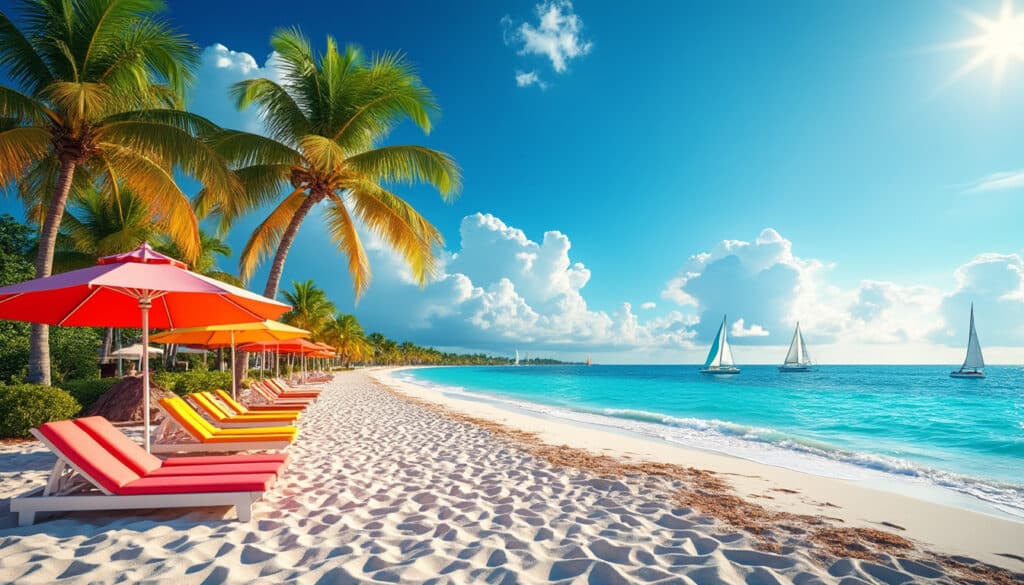
Climate & Weather in Fort Lauderdale
Fort Lauderdale, a sun-drenched paradise in Florida, is famed for its picturesque beaches, intricate canal system, and ultimate vacation allure. Understanding the climate and weather patterns of this coastal city is essential for travelers and residents alike. Knowledge of the…

Time and time zone in Fort Lauderdale
🌴 Known for its beautiful beaches and bustling culture, Fort Lauderdale offers more than just scenic views. A hub of diverse experiences, it’s a place where time gains a unique dimension. From the daily rhythm determined by its Eastern Time…

Unusual facts and social issues in Fort Lauderdale
Fort Lauderdale, often recognized for its sun-kissed beaches and vibrant nightlife, harbors an array of unusual facts and social intricacies that paint a more complex picture of this coastal city. Known as the “Venice of America” due to its vast…
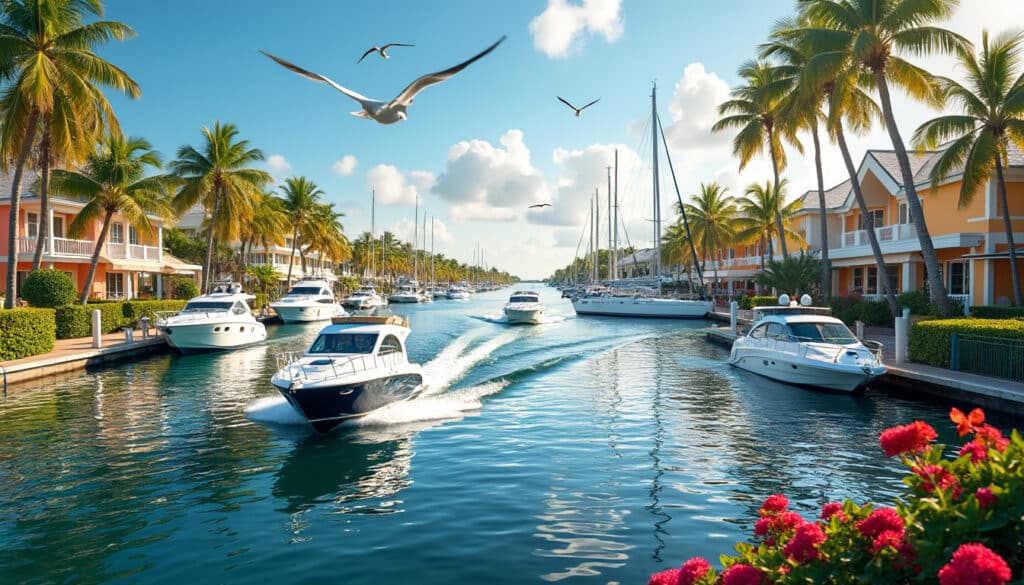
What does Fort Lauderdale look, smell, feel like?
Exploring the vibrant city of Fort Lauderdale can be a multi-sensory adventure with its stunning waterways, bustling arts scene, and culinary delights that offer an immersive experience for locals and tourists alike. Known for its nickname, the “Venice of America,”…

